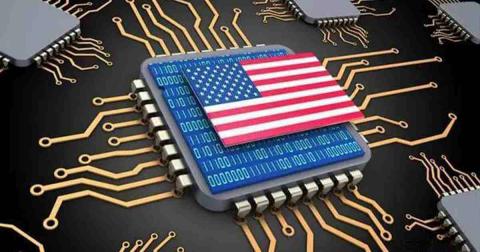
With the increasing importance of chip technology in the spheres of artificial intelligence, espionage, cyberwarfare, and advanced weapons systems, national security now crucially depends on a stable chip supply chain. The Biden administration has shown its deep concern about boosting the reliability of the domestic chip supply and it's represented as a core target of the "Chip Bill." Earlier this year, U.S Secretary of Commerce Gina Raimondo portrayed enhancing the domestic chip supply as an investment in national security. A contract was launched between the Department of Defense and the Department of Commerce that lets the former understand the details of chip project funding plans.
In terms of the monetary support provided, it is estimated that the establishment of these "secure enclaves" facilities might need a fund ranging between 3 to 4 billion dollars. Such a fund will originate from the 39 billion dollar production subsidy endorsed by the "Chip Bill". Intel, the industry magnate is expected to gain the most from this. Apart from being involved in the "secure enclaves" facility project, Intel is also a strong contender to receive billions in grants. These grants will finance Intel's construction of new factories all around the U.S, including states like Ohio and Arizona. This ambitious vision has been backed up by several interactions between Intel's CEO Patrick Gelsinger and Gina Raimondo.
The chip industry has become a significant aspect of geopolitical power and military strength, this is most evident in areas such as artificial intelligence. In this growing sector, Intel seems to be leading in the project for defense chip security facilities. The company is projected to be the main candidate to receive billions in funding from the U.S government for building secure facilities specially designed for the production of chips for military and intelligence applications. The aim of this projected move is to reduce the U.S military's dependence on imported chips from East Asia, specifically Taiwan.
However, it’s not just major players like Intel that are making strides in chip technology. Smaller companies such as Ample Chip are also pushing the boundaries of chip trade business. This includes streamlining the international chip supply chain and diversifying the number of industries they serve, which in turn fosters the growth of domestic technology and job creation. The ultimate goal is to enhance the country's military prowess, ensure national security, and promote local technology and job growth.
Though no concrete funding amount has been established yet by the Biden administration, people in the know suggest. The successful endeavor of Intel and its partners would provide a robust foundation for US defense and intelligence application chip production, minimizing the dependency on external supply chains.
This move is poised to strengthen America's military strength, ensure national security while providing a surge of growth for local tech and boosting job creation. Intel's leading role in defense chip security facility projects underscores the US government's commitment to preserving national security and domestic chip manufacturing capabilities, but also fortifying the competitiveness of the tech industry domestically. The grant program of this size is expected to offer a sustainable solution for US defense chip manufacturing, boosting the core abilities of defense and intelligence applications.

